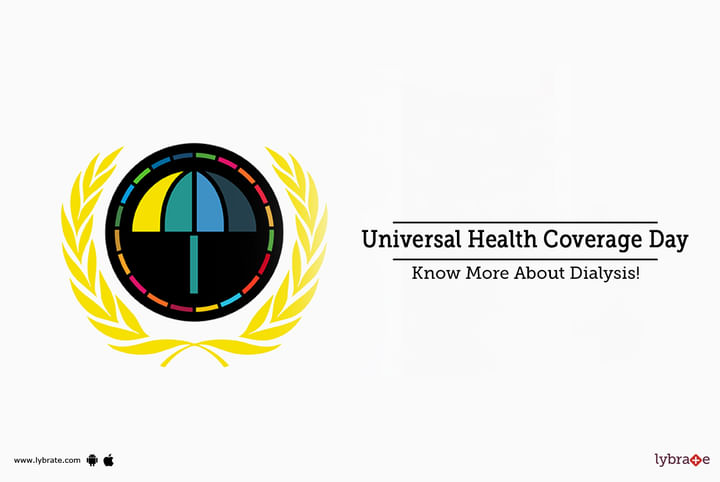Universal Health Coverage Day - Know More About Dialysis!
Universal healthcare is a scheme of healthcare services, which provides access to healthcare to the inhabitants of a single country or territory (also referred to as the Universal healthcare, universal coverage or universal care). It is usually structured to offer health-care facilities or means to acquire all people or others who cannot support themselves with the intention of enhancing health outcomes. Universal healthcare does not mean that any person has access to health care, for everyone and all persons. Certain universal healthcare schemes are funded by the government, while others are built around the requirement of commercial health insurance for all residents. Three important facets of universal health coverage can be determined: who is insured, what programmes are covered and how much the expenses are covered. The World Health Organisation describes it as a situation in which individuals can access health care without any financial difficulty. The Director-General of WHO defines universal health care as the single best principle public health to provide' because it unifies and offers care in an interconnected and systematic manner.' Universal healthcare aims to establish a system of insurance that provides individuals with the best degree of health equal opportunities. In the framework of the Sustainable Development Goals, member countries of the United Nations committed to move for public health security by 2030.
A dialysis diet is a special diet that is customized for patients who are or will be starting dialysis within a short period of time. Such a diet is prepared to reduce the waste and fluid levels that keep on accumulating between the dialysis sessions so that the patient remains healthy for the process to be carried out seamlessly.
What can you eat?
Eat foods which are rich in high-quality proteins (poultry, fish, lean meat and egg whites).
What can’t you eat?
Eat less of foods which are rich in sodium and phosphorus.
Foods high in Sodium
1. Use minimum salt in preparing the dishes; this helps control BP and probable weight gain that might happen between the dialysis sessions.
2. Make use of spices, herbs and other salt-flavoured enhancers.
Meat
1. Patients on dialysis need to include more high-quality protein foods in their diet. This will help regulate blood protein levels. Eat about 10 ounces of foods rich in high-quality protein every day.
2. 1 egg, ¼ cup of ricotta cheese, ¼ cup of tuna.
Salads/Vegetables
- The potassium content of vegetables can be alarming for a patient on dialysis. Eat 3 servings of vegetables that are low in potassium every day. These include broccoli, cauliflower, cabbage, carrots, garlic, cucumber, eggplant, celery, radishes, etc.
- Avoid vegetables such as beets, potatoes (in any form- wafers or wedges), winter squash, cooked spinach, pumpkin, asparagus and avocado.
Note:
- Although seeds, nuts, peanut butter, lentils, dried beans and peas are rich in protein, they are generally struck off from the diet plan because of their high phosphorus and potassium content.
- You can have moderate amounts of grains, bread and cereals.
- Try and not have brown bread and other whole grains as they are loaded with phosphorus.
- Usually, 5-10 servings of these are considered sufficient for patients on dialysis.
- Also, limit the intake of milk and other dairy products.
- ½ cup yoghurt or ½ a cup of milk is considered safe. Also, remember that all varieties of milk- skim, whole and low fat, have the same amount of phosphorus.
- All fruits contain some amount of potassium. However, some of them contain more potassium than others. Limit your intake of fruit juices.
- Avoid or limit fruits like:
- Orange juice and oranges
- Kiwis
- Prune juice and prunes
- Dried fruit and raisins
- Melons
- Bananas



+1.svg)
